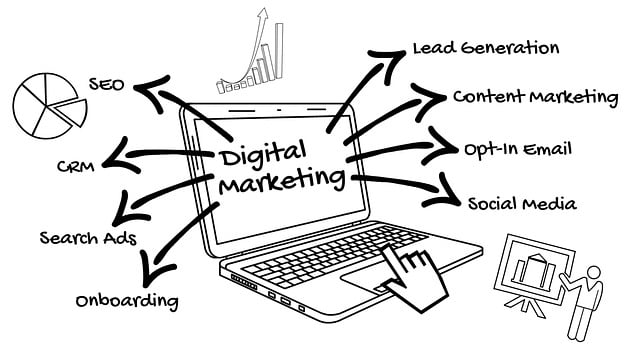Artificial Intelligence (AI) is transforming residential real estate through advanced predictive pricing models that leverage vast datasets for precise property valuation. AI algorithms empower brokers with dynamic price forecasts and intuitive data visualization dashboards, providing actionable insights into market trends, property values, and consumer behaviors. These dashboards enable swift pattern recognition in complex data, facilitating informed decisions about pricing strategies and enhancing transaction efficiency. While implementing AI-driven dashboards offers significant advantages like accurate pricing insights and enhanced marketing, challenges include data privacy, security, quality maintenance, and workflow integration.
“Revolutionize residential real estate with AI predictive pricing models. As the digital landscape evolves, Artificial Intelligence (AI) is transforming traditional property valuation methods. This article explores how AI can provide an edge to real estate professionals. We delve into its role in refining pricing strategies and enhancing decision-making processes.
A key focus is the power of data visualization dashboards tailored for brokers, enabling them to gain valuable insights. By implementing predictive models, agents can offer more accurate assessments, gaining a competitive advantage. However, challenges exist, and we’ll discuss how to navigate them.”
- Understanding AI's Role in Residential Real Estate Pricing
- Building Data Visualization Dashboards for Brokers
- Implementing Predictive Models: Benefits and Challenges
Understanding AI's Role in Residential Real Estate Pricing

Artificial Intelligence (AI) is transforming residential real estate by introducing advanced predictive pricing models that offer unprecedented accuracy in estimating property values. These models leverage vast amounts of data, from historical sales records to demographic trends and local market conditions, to identify intricate patterns that influence home prices. By analyzing this complex data through sophisticated algorithms, AI enables brokers to create dynamic price forecasts and insightful data visualization dashboards.
These dashboards empower real estate professionals with actionable insights, allowing them to make informed decisions regarding property listings and sales strategies. With AI-driven predictions, brokers can set competitive listing prices, maximize sales potential, and better serve their clients in a rapidly evolving market. By embracing these innovative tools, the industry is enhancing its ability to navigate complex pricing dynamics and ensuring more efficient transactions.
Building Data Visualization Dashboards for Brokers

In today’s digital era, AI data visualization dashboards have become a game-changer for real estate brokers. These innovative tools empower agents by providing clear and actionable insights into market trends, property values, and consumer behaviors. With AI at play, brokers can quickly identify patterns and anomalies in vast datasets, enabling them to make informed decisions about pricing strategies. This capability is pivotal for predictive pricing models, as it facilitates the accurate forecasting of property values, ultimately enhancing the efficiency and effectiveness of residential real estate transactions.
Data visualization dashboards specifically tailored for brokers offer a symphony of information, from geographic trends to historical price data. They transform complex datasets into comprehensible graphs, charts, and maps, allowing agents to navigate the market landscape with ease. This level of accessibility not only simplifies the process of identifying lucrative opportunities but also helps in understanding the intricate relationships between various factors influencing property prices. As a result, brokers can offer clients more precise evaluations and recommendations, fostering trust and strengthening their professional reputation.
Implementing Predictive Models: Benefits and Challenges

Implementing predictive models in residential real estate offers a host of benefits for brokers and agents. These models leverage AI-driven data visualization dashboards to provide accurate, data-backed insights into property pricing trends. By analyzing vast datasets—including historical sales data, market conditions, and socio-demographic factors—these models can predict future prices with impressive accuracy. This predictive power enables brokers to set more competitive listing prices, enhance marketing strategies, and offer clients informed advice based on solid analysis.
However, implementing these models isn’t without challenges. Data privacy and security are paramount concerns, as sensitive property and personal information must be handled securely. Ensuring data quality and consistency is another hurdle; incomplete or inaccurate data can lead to unreliable predictions. Moreover, while AI models can provide valuable insights, they don’t replace the human element—expertise, local knowledge, and an understanding of unique market dynamics—that experienced brokers bring to the table. Integration of these models into existing workflows requires careful planning and potential adjustments to established practices.
AI is transforming residential real estate by empowering brokers with advanced predictive pricing models. By leveraging machine learning algorithms and creating intuitive data visualization dashboards, brokers can gain valuable insights into market trends and make informed decisions. These tools not only enhance efficiency but also improve accuracy in price estimation. While implementing these models presents certain challenges, the benefits for both brokers and clients are significant. Embracing AI technology, especially through innovative data visualization dashboards, is a strategic move for brokers looking to stay ahead in today’s competitive market.
